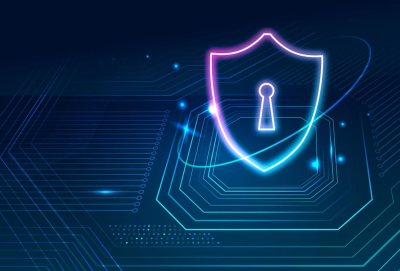
Safeguarding the Digital Realm: The Vital Importance of Cybersecurity
In today’s interconnected world, where technology permeates every aspect of our lives, the need for robust cybersecurity measures has never been more critical. With the ever-growing number of cyber threats and the increasing sophistication of malicious actors, safeguarding our digital realm has become an imperative for individuals, organizations, and nations alike. This article aims to shed light on the significance of cybersecurity and highlight key strategies to ensure the protection of sensitive information in the face of evolving cyber threats.
The Escalating Cyber Threat Landscape
The cyber threat landscape has expanded exponentially in recent years, with cybercriminals employing increasingly advanced techniques to exploit vulnerabilities in digital systems. From financial fraud and identity theft to data breaches and state-sponsored attacks, the ramifications of cybercrime are far-reaching and can result in significant financial losses, reputational damage, and compromised privacy.
Individuals and organizations face a multitude of threats, including malware, phishing attacks, ransomware, and social engineering. Nation-states are engaged in cyber espionage, aiming to gain unauthorized access to critical infrastructure, steal intellectual property, or disrupt essential services. As technology continues to advance, emerging trends such as the Internet of Things (IoT), artificial intelligence (AI), and cloud computing present new opportunities for attackers to exploit vulnerabilities.
The Significance of Cybersecurity
Cybersecurity plays a pivotal role in safeguarding our digital lives and ensuring the integrity, confidentiality, and availability of information. Here are some reasons why cybersecurity is of paramount importance:
- Protection of Personal and Sensitive Information: In an era where personal information is increasingly stored and shared online, robust cybersecurity measures are essential to protect individuals’ privacy and prevent identity theft, financial fraud, and unauthorized access to sensitive data.
- Defense of Critical Infrastructure: Vital sectors such as energy, transportation, healthcare, and finance heavily rely on interconnected systems. Cybersecurity safeguards these critical infrastructures against potential attacks that could have severe consequences for public safety, economic stability, and national security.
- Preserving Business Continuity: Organizations face substantial financial and reputational risks in the event of a successful cyberattack. Effective cybersecurity measures ensure the continuity of business operations, protect customer trust, and shield against potential legal and regulatory penalties.
- Safeguarding Intellectual Property: Intellectual property theft is a significant concern for businesses and nations. Cybersecurity measures defend against industrial espionage, preserving innovation, and economic competitiveness.
Key Strategies for Cybersecurity
- Risk Assessment and Management: Organizations should conduct regular risk assessments to identify potential vulnerabilities and assess the potential impact of cyber threats. This enables the development of effective risk management strategies tailored to the organization’s specific needs.
- Robust Security Policies: Establishing and enforcing comprehensive security policies is crucial. This includes implementing strong access controls, password management practices, encryption protocols, and user awareness programs to promote a security-conscious culture.
- Regular Updates and Patch Management: Timely installation of security updates and patches for operating systems, applications, and network infrastructure is vital. Regular updates help mitigate vulnerabilities that cybercriminals may exploit.
- Multi-Factor Authentication (MFA): Implementing MFA adds an extra layer of security by requiring users to provide multiple forms of identification, such as passwords, biometrics, or hardware tokens. This helps prevent unauthorized access even if passwords are compromised.
- Employee Education and Awareness: Human error remains a significant factor in successful cyberattacks. Organizations should provide ongoing cybersecurity training to employees, fostering awareness about common threats, phishing techniques, and best practices to avoid falling victim to social engineering attacks.
- Incident Response and Recovery: Establishing an incident response plan enables organizations to react swiftly and effectively in the event of a cyber incident. This includes measures such as incident detection, containment, mitigation, and recovery procedures to minimize damage and restore operations.
In an increasingly digitized world, cybersecurity is a critical pillar that upholds the integrity, trust, and stability of our digital infrastructure. From individuals to organizations and governments, everyone must recognize the importance of implementing robust cybersecurity measures. By prioritizing risk assessment, adopting comprehensive security policies, staying informed about emerging threats, and fostering a culture of cybersecurity awareness, we can collectively fortify our defenses and mitigate the impact of cyber threats. Together, we can build a safer and more secure digital realm for future generations.

